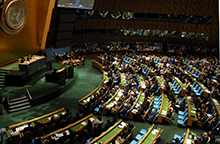
Building Trust in AI through Justice


Array
(
[thumbnail] => https://s42831.pcdn.co/wp-content/uploads/2022/09/hero-placeholder-150x150.png
[thumbnail-width] => 150
[thumbnail-height] => 150
[medium] => https://s42831.pcdn.co/wp-content/uploads/2022/09/hero-placeholder-300x129.png
[medium-width] => 300
[medium-height] => 129
[medium_large] => https://s42831.pcdn.co/wp-content/uploads/2022/09/hero-placeholder-768x329.png
[medium_large-width] => 768
[medium_large-height] => 329
[large] => https://s42831.pcdn.co/wp-content/uploads/2022/09/hero-placeholder-1024x439.png
[large-width] => 1024
[large-height] => 439
[1536x1536] => https://s42831.pcdn.co/wp-content/uploads/2022/09/hero-placeholder.png
[1536x1536-width] => 1400
[1536x1536-height] => 600
[2048x2048] => https://s42831.pcdn.co/wp-content/uploads/2022/09/hero-placeholder.png
[2048x2048-width] => 1400
[2048x2048-height] => 600
[gform-image-choice-sm] => https://s42831.pcdn.co/wp-content/uploads/2022/09/hero-placeholder.png
[gform-image-choice-sm-width] => 300
[gform-image-choice-sm-height] => 129
[gform-image-choice-md] => https://s42831.pcdn.co/wp-content/uploads/2022/09/hero-placeholder.png
[gform-image-choice-md-width] => 400
[gform-image-choice-md-height] => 171
[gform-image-choice-lg] => https://s42831.pcdn.co/wp-content/uploads/2022/09/hero-placeholder.png
[gform-image-choice-lg-width] => 600
[gform-image-choice-lg-height] => 257
)

In late July, the Open Working Group (OWG) on the Sustainable Development Goals (SDGs) finalized its outcome document after nearly a year and a half of discussions and negotiations. The report marks a big leap forward in the global effort to establish a framework to succeed the Millennium Development Goals in 2015. But what happens next is not exactly clear, and negotiations in the next couple months could affect the future SDG framework.
From the perspective of the UN Secretary-General as well as member states, the key political priority is to embrace the outcome of the OWG and move forward identifying the missing pieces of the post-2015 development agenda. However, the general sentiment among OWG members is that the outcome still has room for improvement. As a consequence, the issue of how exactly member states react in the months to come to the OWG report will define the course of the intergovernmental negotiations leading to the September 2015 summit.
As the OWG outcome document is largely viewed as a document of compromise, it is quite possible that changes take place among member states during the UN General Assembly high-level meetings this September as well as in subsequent months. Similarly, discussions during the OWG presentation itself will present another occasion in which old, contentious issues might arise again.
As there is no clear-cut path forward, the 2015 summit could result in the following three alternatives: the summit outcome could (1) adopt the goals (essentially transcribing the goals into the text of the declaration) and leave the targets for further refinement; (2) endorse the goals and targets—and possibly the means of implementation; or (3) reformulate entirely the new goals and targets.
Because a significant number of member states expressed reservations with respect to many targets before the adoption, it is likely that those member states will seek to re-open the SDGs in the context of the negotiations. Much of those negotiations will ultimately be decided in a setting that is likely to be defined in the UN General Assembly resolution of modalities of the summit, particularly if the proposal to appointing facilitators to prepare the summit moves forward.
Similarly, it is possible that during the closed negotiations after September’s OWG presentation, member states will take steps to re-open the OWG document to address contentious issues, including but not limited to the sixteenth goal to “Promote peaceful and inclusive societies for sustainable development, provide access to justice for all and build effective, accountable and inclusive institutions at all levels.” The challenge, however, is that opening one goal or one target will force opening the entire document.
Countries have vowed to continue to push for changes during the intergovernmental processes that commence after the UN General Assembly. Yet it is also worth noting that any lingering issues among delegates on the OWG document may be accommodated in the UN Secretary-General’s synthesis report later this year.
Some of the more contentious issues involved the treatment of three areas: (1) the omission of a target on illegal unilateral sanctions, as advocated by Russia, Cuba, and others; (2) the lack of a target on foreign occupation, which was strongly favored by the Arab Group; and (3) the inclusion of target 5.6 concerning sexual and reproductive health and rights “as agreed in accordance with the Programme of Action of the ICPD and the Beijing Platform for Action.” With respect to target 5.6, the addition of “and the outcome documents of their review conferences” was highly problematic, in large part because this addition re-opens the International Conference on Population and Development (ICPD). The Group of 77 countries and China were opposed because of the wider implication of reproductive rights.
Another divisive issue was Goal 16 on peaceful societies, institutions, and access to justice. During the final days of the thirteenth session of the OWG, the main area of contention was the inclusion of the “rule of law.” For the G-77 countries, it was also important that the final formulation of the goal heading included “Promote peaceful and inclusive societies for sustainable development…”
Those following the post-2015 process will pay close attention to these issues and country positions in the coming weeks. Negotiations at the UN this September may very well influence the final SDG framework.
Publication Date:
Aug 12, 2014
Author(s):
Jeffrey Strew
Topic(s):
Post 2015 Development
Program(s):
Pathfinders for Peaceful, Just and Inclusive Societies


Subscribe to our newsletter and receive regular updates on our latest events, analysis, and resources.
"*" indicates required fields